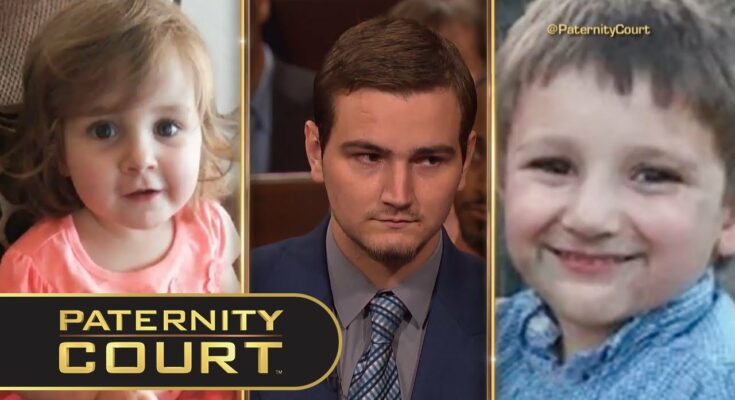In the intricate world of family law, paternity cases often present a labyrinth of emotional and legal complexities. A prime example of this is the case of Arboagst v. Vess, which was featured on the popular television show, Paternity Court. This case not only provides a stark illustration of the emotional turmoil that can arise in paternity disputes but also underscores the critical role of establishing paternity in ensuring the welfare of the child.
Ms. Arboagst and Mr. Vess, once in a relationship, found themselves entangled in a bitter dispute when Mr. Vess began to deny the paternity of their daughter, Kinzleigh. This led to a legal battle, with Ms. Arboagst suing Mr. Vess for $5,000 in child care expenses. The dispute was not just about the money, but also about the emotional support and acknowledgment that comes with being a father.
Throughout the case, Mr. Vess maintained that he was not Kinzleigh’s father, citing Ms. Arboagst’s promiscuous behavior as the reason for his doubt. Despite being listed as the father on the birth certificate, Mr. Vess had only provided a meager $100 in financial support over two years. He defended his lack of financial support by saying, “Uh, no, because how can I take care of somebody’s daughter that may or may not be mine?” This statement encapsulates the crux of many paternity disputes – the uncertainty and the reluctance to take responsibility without concrete proof.
In a poignant moment during the proceedings, the judge questioned Mr. Vess about his lack of financial support for his older child. Mr. Vess claimed he had been providing for the child, but when asked about the amount he had contributed, he admitted to only giving $100. This admission revealed a deeper issue – the absence of emotional and financial support, even for a child whose paternity was not in question.
In the midst of this dispute, Ms. Arboagst’s current boyfriend stepped in to fill the role of father for both children. This further complicated the situation, as Mr. Vess argued that he had not been present in his son’s life because Ms. Arboagst had kept him away. Ms. Arboagst, expressing her frustration, retorted: “Okay, well, just because you don’t wanna take care of our daughter, we still have a 3-year-old son that you haven’t helped for either.” This statement underscores the emotional toll that such disputes can take on the parties involved.
The case took another twist when it was revealed that Ms. Arboagst had slept with another man around the same time as the conception of Kinzleigh. Despite this, she insisted that Mr. Vess was the father, leading to further tension and uncertainty. She defended her actions, saying: “Because he’s the one who told me to go do it and we used protection.” This revelation added another layer of complexity to the case, highlighting the intricate web of relationships and actions that often surround paternity disputes.
The judge emphasized the importance of bonding with the child and criticized Mr. Vess for not being present in Kinzleigh’s life. In the end, the court ruled in favor of Ms. Arboagst, ordering Mr. Vess to take an active role in his child’s life and seek counseling to establish a healthy co-parenting relationship. The judge, delivering the verdict, announced: “In the caseof Arbogast v. Vess, when it comes to 2-year-old Kinzleigh Vess, it has been determined by this court, Mr. Vess, you are the father.”
This verdict brought a sense of closure to the case, but it also served as a stark reminder of the responsibilities that come with parenthood. The judge’s words echoed the courtroom as she advised Mr. Vess to step up and be a father to his children. She said, “Mr. Vess, you have to reclaim your place as their father in their lives. And even when there was a paternity question related to Kinzleigh, there was not one related to Kamren. And you still weren’t showing up for him. That’s gotta stop now.”
The Arboagst v. Vess case serves as a stark reminder of the emotional and financial complexities that can arise in paternity disputes. It underscores the importance of establishing paternity and the critical role it plays in ensuring the welfare of the child. It also highlights the emotional toll that such disputes can take on all parties involved, especially the children who are caught in the middle.
In conclusion, the case of Arboagst v. Vess is a testament to the intricate and emotionally charged nature of paternity disputes. It underscores the importance of responsibility, honesty, and communication in navigating the complex world of family law. Above all, it serves as a reminder that at the heart of these disputes are children who need love, support, and stability, regardless of the circumstances surrounding their birth.



